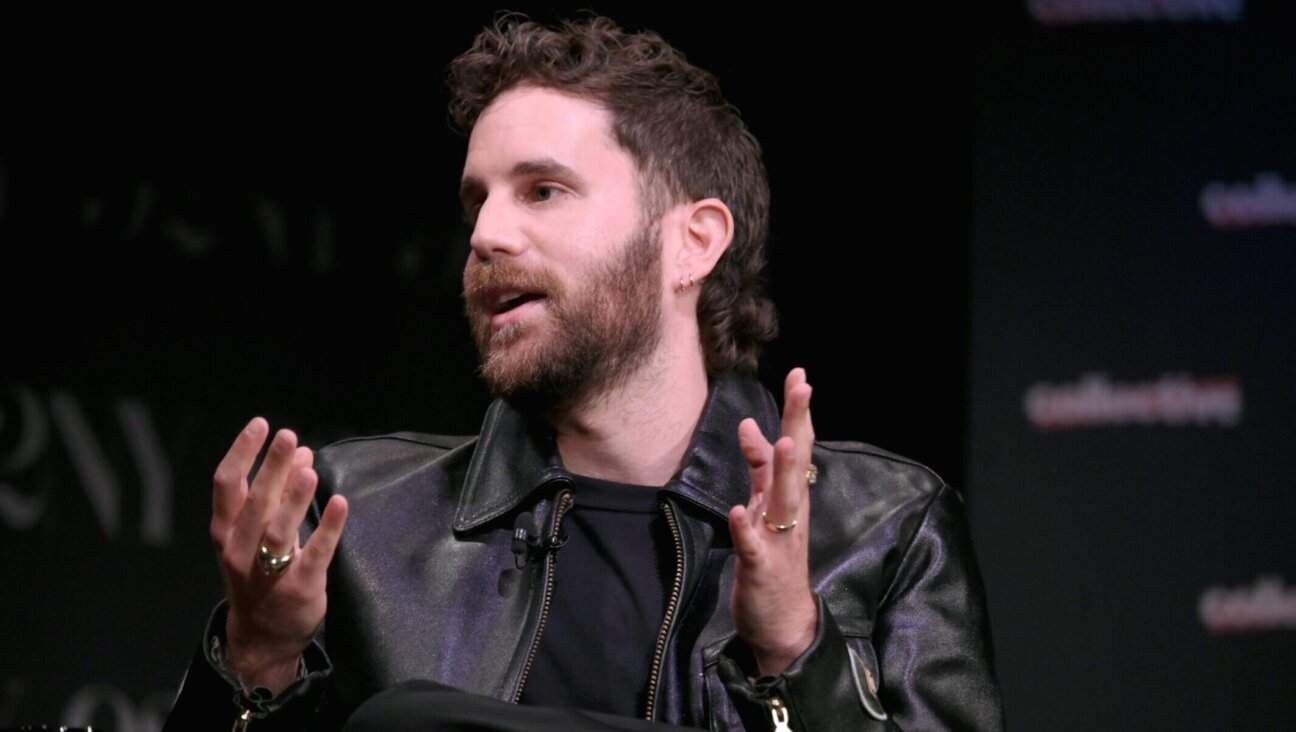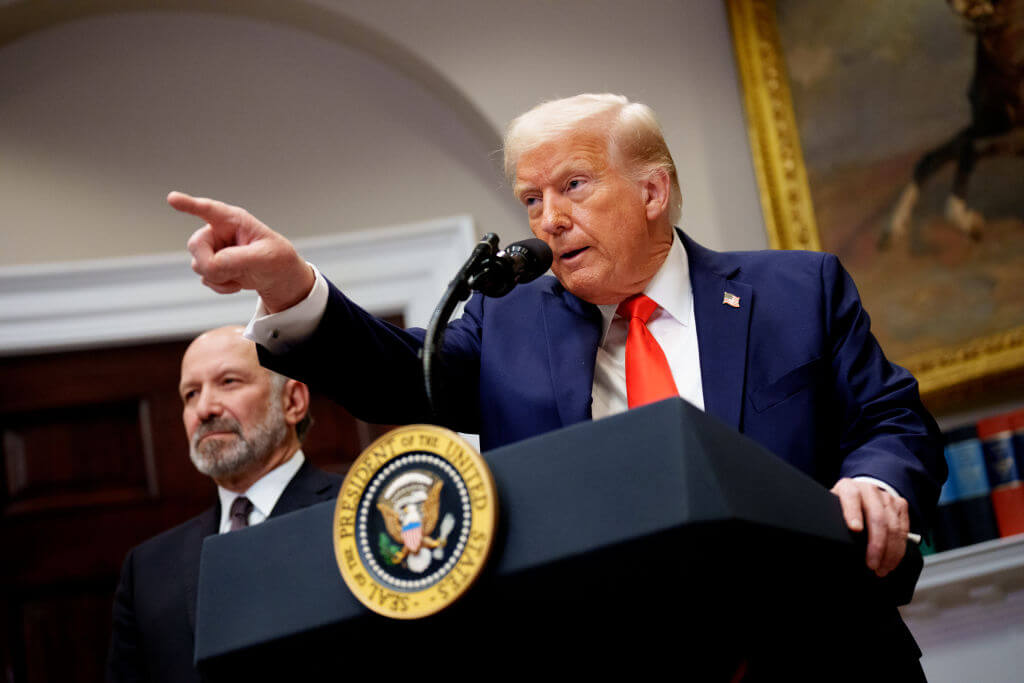UNICEF Criticized After Banning Mogul
The United Nations’ Children Fund, UNICEF, has landed in troubled Middle Eastern waters.
On June 19, UNICEF swore off any relationship with a controversial Israeli diamond mogul, Lev Leviev, because of his construction of settlements in the Palestinian territories.
UNICEF officials said the reason for the move was that Leviev’s construction activities in the West Bank were in violation of the Fourth Geneva Convention. The organization also cited his involvement in the gambling industry.
A few days before the Leviev announcement, UNICEF had inked a partnership with a Saudi charity, some of whose branches had been accused by America and the U.N. of having terrorist ties.
Like other U.N. agencies and bodies, UNICEF has repeatedly been embroiled in politically charged arguments in the Middle East, incurring the wrath of conservatives both in Israel and in the U.S., for activities such as running summer camps for Palestinian children or publishing a report in the 1990s claiming that more than 1 million children had died in Iraq as a result of U.N. sanctions.
Conservative and pro-Israel groups saw the two latest developments as further evidence of the U.N.’s anti-Israel bias.
“The decision not to accept assistance from Mr. Leviev smacks of selective political discrimination,” Abraham Foxman, the Anti-Defamation League’s national director, said in a statement.
In a letter to Ann Veneman, UNICEF’s executive director, the ADL questioned the decision and its timing, noting that the fund has a history of accepting aid from other questionable partners, including the International Islamic Relief Organization, a leading Saudi charity.
Earlier this month, UNICEF and IIRO had signed a memorandum of understanding to bolster cooperation in the field of children’s education.
In August 2006, the U.S. Treasury Department designated the IIRO’s branches in the Philippines and Indonesia as terrorist entities for funding and supporting Al Qaeda-affiliated groups in those countries. The Treasury Department also singled out the head of the IIRO’s branch in Saudi Arabia’s Eastern Province for directly funding the two terror-tied branches and providing donor funds directly to Al Qaeda.
As a result of the U.S. move, the U.N. blacklisted the two branches, thus freezing their assets and banning their members from international travel.
UNICEF officials stressed that the agency did not engage with the two designated East Asian branches but merely with the Saudi Arabian main office.
Carolyn Vadino, a spokesman to the U.S. mission to the U.N., said U.S. government reports supported the view that the Saudi office was not suspected of terrorist ties.
“We continue to monitor the situation but we don’t have objections,” she told the Forward.
But a former U.S. government official directly involved in the terror designation process criticized the UNICEF decision.
“This partnership is completely inappropriate,” said Matthew Levitt, who was deputy assistant secretary for intelligence and analysis at the U.S. Department of the Treasury when the IIRO branches and official were designated. “The designation of some branches is significant and the fact that the Saudi headquarters have not been designated does not mean they are on some kind of ‘white list.’”
In the past, some of UNICEF’s programs have been funded with donations from Leviev, the Uzbek-born magnate who made contributions to UNICEF through charity auctions — once at the Cannes film festival in 2007. On June 19, UNICEF announced that it would not accept any more donations from Leviev and his companies.
Leviev did not respond to calls for comment.
While UNICEF normally only screens formal partnerships with corporate and nonprofit partners — not individual donors — it made an exception for Leviev as a result of complaints from advocacy groups, according to Chris de Bono, UNICEF’s chief spokesperson.
Indeed, the decision to cut ties with Leviev was the result of a months-long campaign led by Adalah-New York, a coalition of pro-Palestinian groups.
Leviev, a staunch supporter of Orthodox causes who immigrated to Israel in the 1990s, is the chairman of Africa-Israel Investments, a holding company with interests in diamonds and real estate.
Adalah protested against two Leviev-controlled construction companies that were building houses in West Bank settlements, as well as in contested areas around Jerusalem. Upon learning that Leviev had contributed to UNICEF, Adalah contacted the U.N. agency earlier this year and held a meeting with UNICEF officials in April. The following month, UNICEF officials visited the site of some of the disputed construction.
On June 18, UNICEF officials met with Adalah officials to inform them of the agency’s decision. UNICEF confirmed in a letter to Adalah dated June 19 that it “will not consider partnerships — direct or indirect — with Mr. Lev Leviev or any of his corporate entities, and will not accept financial or other support that we know is from him or his corporate entities.”
The Forward is free to read, but it isn’t free to produce

I hope you appreciated this article. Before you go, I’d like to ask you to please support the Forward.
Now more than ever, American Jews need independent news they can trust, with reporting driven by truth, not ideology. We serve you, not any ideological agenda.
At a time when other newsrooms are closing or cutting back, the Forward has removed its paywall and invested additional resources to report on the ground from Israel and around the U.S. on the impact of the war, rising antisemitism and polarized discourse.
This is a great time to support independent Jewish journalism you rely on. Make a Passover gift today!
— Rachel Fishman Feddersen, Publisher and CEO
Most Popular
- 1

Opinion My Jewish moms group ousted me because I work for J Street. Is this what communal life has come to?
- 2

News Student protesters being deported are not ‘martyrs and heroes,’ says former antisemitism envoy
- 3

Fast Forward Suspected arsonist intended to beat Gov. Josh Shapiro with a sledgehammer, investigators say
- 4

News Who is Alan Garber, the Jewish Harvard president who stood up to Trump over antisemitism?
In Case You Missed It
-

Fast Forward Dozens of members of UK’s largest Jewish group sign letter condemning war in Gaza
-

Culture Actor Ben Platt says his Jewish identity is ‘not defined’ by Israel, showing a gap between him and his influential family
-

Fast Forward Shapiro house fire suspect targeted Jewish governor over pro-Israel stances, search warrant says
-

Fast Forward Jewish family killed in New York plane crash
-
Shop the Forward Store
100% of profits support our journalism
Republish This Story
Please read before republishing
We’re happy to make this story available to republish for free, unless it originated with JTA, Haaretz or another publication (as indicated on the article) and as long as you follow our guidelines.
You must comply with the following:
- Credit the Forward
- Retain our pixel
- Preserve our canonical link in Google search
- Add a noindex tag in Google search
See our full guidelines for more information, and this guide for detail about canonical URLs.
To republish, copy the HTML by clicking on the yellow button to the right; it includes our tracking pixel, all paragraph styles and hyperlinks, the author byline and credit to the Forward. It does not include images; to avoid copyright violations, you must add them manually, following our guidelines. Please email us at [email protected], subject line “republish,” with any questions or to let us know what stories you’re picking up.














